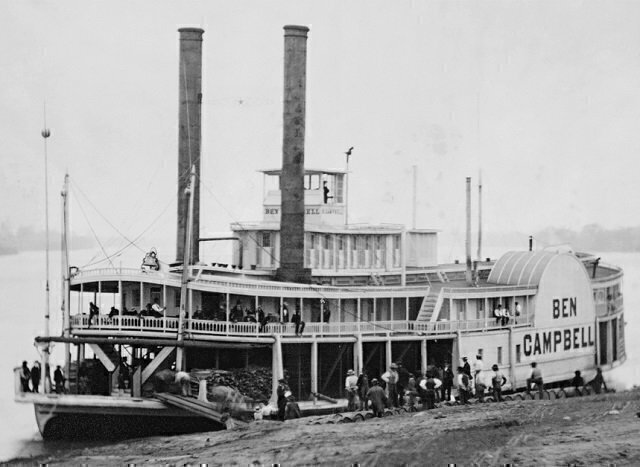The United States Supreme Court case entitled Gibbons vs. Ogden is a vitally important case; it is also a complicated one. In 1808 the Legislature of New York granted Robert Livingston and Robert Fulton exclusive rights over all waters within the jurisdiction of the state. They started a ferry company that was successful for thirty years and had grown to have a similar contract with the Orleans Territory, essentially creating a monopoly.
A man by the name of Aaron Ogden, a former New Jersey Governor, attempted to start his own ferry business but was crushed by the existing monopoly. Ultimately, he purchased a license from Livingston and Fulton in 1815 and entered into business with a partner, Thomas Gibbons. Their partnership was unable to last three years, collapsing after Gibbons licensed and operated a steamboat on Ogden’s route between Elizabethtown, New Jersey, and New York City (fun fact: Cornelius Vanderbilt was one of the ferry captains). Although the monopoly supposedly had sole jurisdiction over the New York half of these waters, Gibbons was able to license the ferry under a 1793 Congressional law regulating coastal trade.
It is safe to say that the partnership between these two men turned into the legal battle of a lifetime. Ogden sued Gibbons, and the case ultimately ended up being argued in the Supreme Court of the United States of America. Gibbon’s lawyer, a young man and future politician named Daniel Webster, argued that Congress had exclusive national power over interstate commerce according to Article I, Section 8, Clause 3 of the Constitution, also known as the Commerce Clause. This clause states: “The Congress shall have Power To lay and collect Taxes, Duties, Imposts and Excises, to pay the Debts and provide for the common Defence and general Welfare of the United States; but all Duties, Imposts and Excises shall be uniform throughout the United States… To regulate Commerce with foreign Nations, and among the several States, and with the Indian Tribes”[1]
As it turns out, this case was vitally important to the national interest. It was heard in the early months of 1824, at the same time when Congress debated a bill that would provide a federal survey of roads and canals across the United States, passed as the General Survey Act in April of 1824. People across the country were concerned about how much power this would give Congress, especially when it came to disputes in which the country was divided regionally, like on the issue of slavery.
The holding of this case was as follows:
New York law was deemed to be invalid because the Commerce Clause of the Constitution designated power to Congress for the regulation of interstate commerce. The Court also decided that the broad definition of commerce included navigation. In summation, the Supreme Court ruled in favor of Gibbons, saying that Congress had the right to regulate interstate commerce. Since the ferry system crossed state lines, the monopoly which Livingston and Fulton had over the state of New York was inconsequential.
Fast forward almost two hundred years, and this decision still stands. To this day, it is still one of the most important Supreme Court decisions in American history. The federal government’s power derives from Article I, Section VIII of the United States Constitution, making the Commerce Clause forever vital to American life.

[1] “The Constitution of the United States: A Transcription,” National Archives, https://www.archives.gov/founding-docs/constitution-transcript.
Leave a Reply